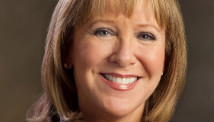STORY HIGHLIGHTS
- Boston mayor declares a public health emergency because of flu
- Massachusetts General Hospital alone has already counted 532 cases of flu among patients
- It's not too late to get a flu vaccine
- In most cases, flu patients don't need to go to the emergency room
(CNN) -- The flu has been spreading fiercely across the United States, with more than half of states reporting widespread activity. The season has started earlier, and cases are more severe than last year, health officials say.
The latest Centers for Disease Control and Prevention flu advisory report, which covers the week of December 23 to 29, suggests that 41 states have widespread influenza activity, which was an increase of 31 states from the previous week. The CDC will issue an update on the flu situation Friday.
There have so far been 2,257 hospitalizations associated with laboratory-confirmed flu virus, the CDC report said. Among children, there have been 18 deaths reported during this season.
In Massachusetts, one of the 29 states that the CDC has identified as having high activity of influenza-like illness, Boston Mayor Thomas Menino declared a public health emergency in the city because of the flu.
Since October 1, there have been 700 confirmed influenza cases among Boston residents, according to Menino's office; that's 10 times more than were seen in all of last year's flu season.
Menino is collaborating with the Boston Public Health Commission and community health centers to offer free vaccination clinics this weekend. The mayor urged residents to stay home from work or school if they are sick, and to get their flu shots.
"This is the worst flu season we've seen since 2009, and people should take the threat of flu seriously," Menino said in a statement. More than 4% of emergency department visits at Boston hospitals are from flu cases, up from 1% during non-flu season.
Experts: Flu spreading faster than usual
Massachusetts General Hospital has already counted 532 cases of flu among patients, which is more than the hospital saw in any of the previous three flu seasons, said spokeswoman Kristen Stanton.
Signs posted throughout the hospital discourage anyone from visiting who has a cough or fever, she said, and anyone who does visit with those symptoms must wear a mask and perform hand hygiene. All staff must wear a mask when providing care for possible flu cases. Any staff member who has not been vaccinated must wear a mask while caring for any patient.
Pennsylvania has had 22 flu-related deaths so far this season, according to data from the state's Department of Health. Most of these deaths occurred among people older than 65, but the fatalities included two individuals younger than 50 who were otherwise healthy.
Lehigh Valley Hospital-Cedar Crest in Allentown, Pennsylvania, set up a heated tent outside the hospital to serve as a clinic. Anyone with mild flu symptoms can be treated quickly and discharged, isolated from more serious cases. The hospital has been seeing an additional 80 to 100 patients with flu-like symptoms daily, officials told CNN affiliate WPVI.
In Michigan, there have been four pediatric deaths related to the flu, said Angela Minicuci, public information officer for the Michigan Department of Community Health.
Dr. David Zich, internal medicine and emergency medicine physician at Northwestern Memorial Hospital in Chicago, said this is the worst flu season he's seen in his 12 years at his hospital, in terms of the concentration of patients.
Northwestern Memorial Hospital is on "bypass," which happens when it is beyond capacity because of an influx of patients, such as during flu season.
That means advanced-life support ambulances with patients who are stable are referred to the next closest hospital, no more than five minutes away, Zich said, and transfers are not accepted from outside hospitals. For everyone else, they are open for business.
"The majority of flu patients are sent home, with very little else done, so we can handle that," he said.
FDA approves new type of flu shot
Why so many cases?
Zich theorizes that one reason there are so many flu cases is that the heart of the flu season coincided with the December holiday season, meaning many people were already sleep-deprived from parties and were more likely to get sick.
Those who went to gatherings of family or friends may have already begun to feel sick, and spread the virus to others. People are generally contagious the day before symptoms start, and for five days after becoming sick, according to the Centers for Disease Control and Prevention.
Last flu season was light, but this year has brought with it some "ominous signs," Dr. Anthony Fauci, director of the National Institute of Allergy and Infectious Diseases at the National Institutes of Health, told CNN's Wolf Blitzer Tuesday.
Flu cases started going up early, toward the end of November and the beginning of December, he said.
"And it went up on a pretty steep trajectory," he said. "The last time we saw that happen that way was the flu season of 2003 and 2004, which turned out to be a bad flu season.'
The type of flu that is going around is called H3N2, which is often linked to more serious disease compared to other flu varieties, Fauci said.
But there's good news: That type of flu matches up well to the vaccine that is being distributed and given out throughout the United States.
People may get more complications from this particular strain of H3N2, "which may make them ill for a longer period of time," Dr. Michael Jhung, medical epidemiologist in the influenza division at CDC, told CNN's Mary Snow.
Best new ways to avoid the cold and flu
"But symptoms typically last up to seven days for a normal infection, a noncomplicated infection with influenza," he said. "And we usually see that from year to year regardless of what strains are circulating."
In a "light" year, a few thousand people may still die, but a particularly serious year could see up to 49,000 deaths from the flu, Fauci said. "There's an average of about 200,000 hospitalizations and there's a lot of economic burdens."
Protect yourself
If you haven't gotten an annual flu vaccine, it's not too late, doctors say. To further protect yourself, try to avoid anyone who is sneezing and coughing, and wash your hands. Also, exercise and eat healthy foods, Zich said.
Most flu patients should not go to an emergency room, Zich said. They will likely be sent home, as there is very little that can be done for them. A fever as high as 103 degrees Fahrenheit is common in the flu.
Patients with normal flu symptoms should get a lot of rest and take painkillers to help with muscle aches, Zich said. "In five to seven days, you're going to be feeling yourself again," he said.
But there are scenarios in which going to a hospital is necessary. If a patient is short of breath, or can't keep fluids down because of nausea, these are signs of a problem that needs immediate attention, as vomiting or sweating from fever can lead to dehydration, Zich said.
Flu can be deadly, even in healthy kids
An otherwise healthy person will not get much benefit from antiviral medications designed to treat symptoms that the flu causes, Zich said. The side effects from both oseltamivir (Tamiflu) and zanamivir (Relenza) include nausea.
The CDC recommends that people who have a higher risk of complications from the flu receive antiviral treatment. These include people with chronic illnesses such as pulmonary, cardiovascular and neurological conditions, as well as anyone 65 years and older and children under age 2.
What many people don't know is that the flu vaccine becomes less effective as you get older or develop other medical problems, Zich said. The flu shot relies on the body's antibodies against the flu, so if the immune system is already compromised, it will not work as well.













